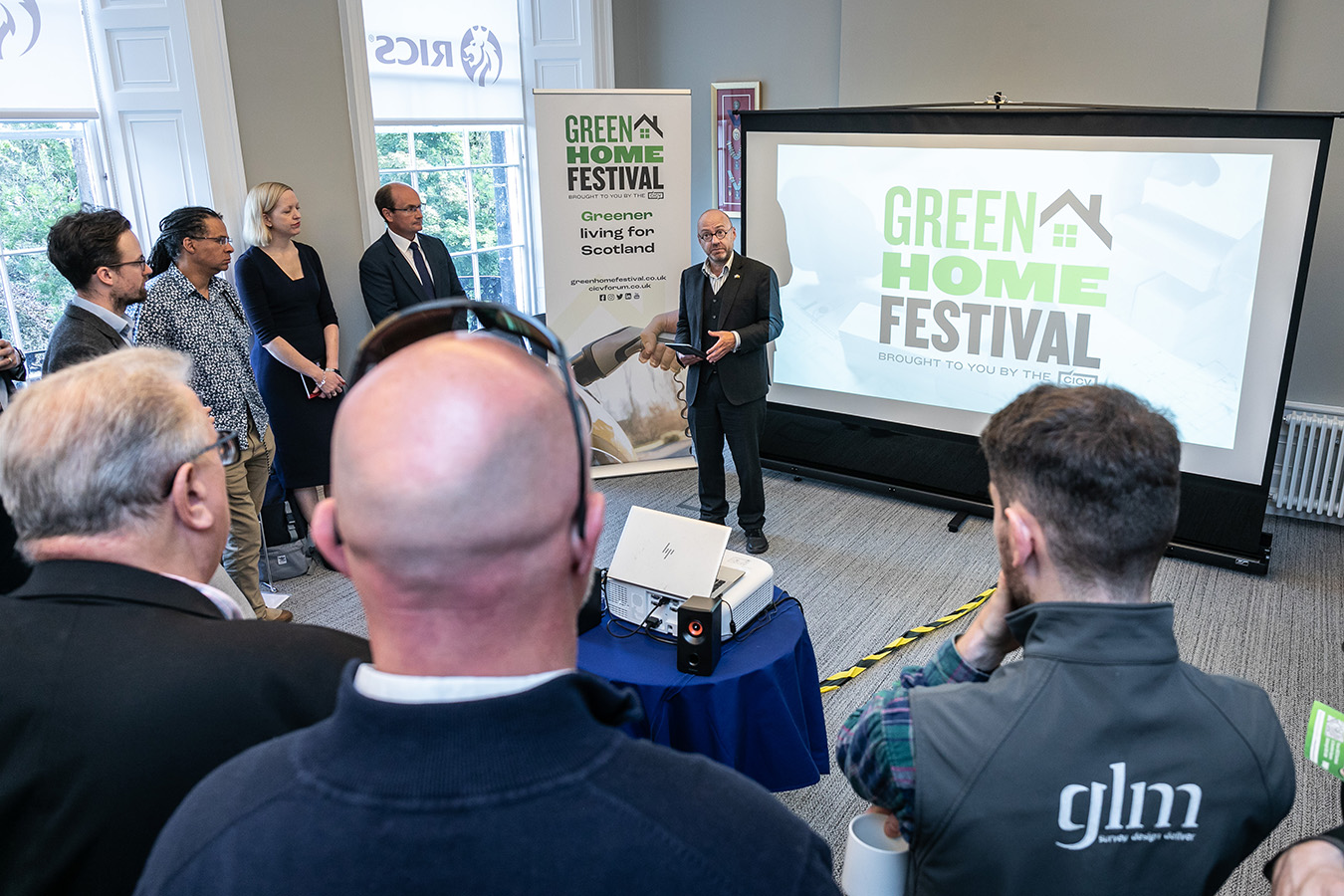
SCOTLAND faces a ‘monumental but essential task’ if it is to overhaul its ‘aged’ housing stock and find practical solutions to reduce emissions and address the climate emergency, Patrick Harvie has said.
The message came as Scotland’s minister for zero carbon buildings, active travel, and tenants’ rights, opened the first ever Green Home Festival at the Edinburgh Festival Fringe as a keynote speaker.
Speaking to delegates at the Scottish HQ of the Royal Institution of Chartered Surveyors (RICS), Mr Harvie outlined the scale of the challenge and some of the measures the Scottish Government was taking to try and tackle today’s environmental issues.
The Scottish Greens co-leader said, “Our homes and workplaces account for around a fifth of Scotland’s total greenhouse gas emissions. Our statutory target for 2030 means that we need to reduce emissions from heating buildings by 68% below their level in 2020.
“This is a monumental but essential task. Our building stock is relatively old, and wasn’t always built to high energy standards. This legacy of poor energy efficiency has contributed to emissions and fuel poverty, so we need to start drastically improving that standard.
“By 2030, we want to see a large majority of homes achieving a level of energy efficiency at least equivalent to an EPC C – with all homes meeting that standard by 2033, where feasible and cost effective. This will reduce emissions from our buildings, but it will also help make our energy more affordable, by removing poor energy efficiency as a driver of fuel poverty.”
Mr Harvie, who is MSP for the Glasgow region, also warned that, as well as improving energy efficiency, Scotland needs to switch to zero direct emissions heating.
He added, “Meeting our 2030 target means that we need over a million homes and the equivalent of 50,000 non-domestic buildings to switch from fossil fuels. This is a huge transition, affecting communities, businesses and homes across Scotland.
“Getting there will need a much faster installation rate for these zero direct emissions heating systems. In recent years that rate has been around 3,000 homes annually, but we need to reach around 200,000 each year in the latter part of this decade.”
Mr Harvie also said that the cost of living crisis and unprecedented surges in energy prices make the challenge even harder and the government can’t foot the bill on its own.
He revealed, “Our funding will make a huge difference to the heat transition. But the cost of transforming our building stock – around £33 billion to 2045 – can’t be met by government alone. Our Green Heat Finance Task Force is now working on innovative solutions to maximise private sector investment, and to find new ways to help spread the upfront cost of making properties warmer, greener and more energy efficient.”
He concluded, “We know there will be more issues to resolve and we intend to tackle these collaboratively, drawing on the best knowledge and ideas from across society. The climate emergency is already here. But if we adopt many of the actions and ideas being discussed at this week-long Green Home Festival, they will stand us in good stead to mitigate its worst consequences.”








